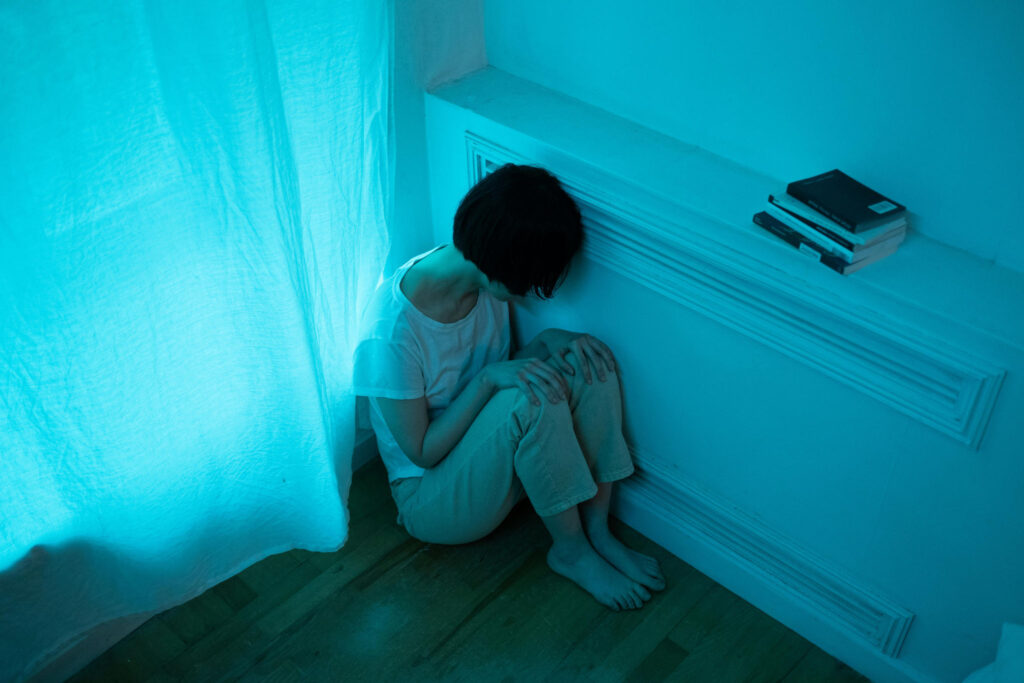I feel a little hesitate talking about my mental health. sharing experiences can help others understand and provide the necessary support. Now, I am at a point in my life where my mental health is improving. I didn’t say I completely got rid of mental issues. I still struggle with overthinking, anxiety and tension. These emotions are a part of being human.

The Challenges I faced
Dealing with anxiety and isolation has brought many struggles:
Difficulty in Focusing: I often find it hard to concentrate on tasks. Task that used to easy now was not able to manage and making hard to stay on track.
Hormonal Imbalances: Stress has affected my body, causing hormonal changes. This has led to my hair turning gray earlier and my skin aging faster.
Mental Fog: I experience frequent mental fog, It feels like there’s a cloud over my thoughts, making it hard to think clearly or make decisions.
Acne: Stress has also caused acne breakouts, which further diminishes my confidence. It’s a visible sign of my inner struggles and constantly reminds me of my anxiety.
These challenges have impacted my confidence, especially in college. Surrounded by others, I find myself constantly comparing and feeling inadequate. I tend to take things personally and end up hurting myself more. Despite this, I try to maintain a composed personality in class to keep some confidence alive. However, doubts and insecurities often overwhelm me, making college feel more like a burden than a place of learning.
Now I just stay in my room day after day, isolating myself but due to my parents’ force to attend college daily. But what do I do? I go to college, sit at the back with my phone and earbuds. When the lecturer arrives, I focus on studying, but as soon as they leave, I put my earbuds back in because I don’t want to talk to anyone. I lack the courage to engage or feel comfortable with anyone. After college, I come straight home. Though I’m not in proper isolation, I still prefer not to go anywhere.

How to Cope with Anxiety and Isolation
Embracing Self Care
Self-care is essential for managing anxiety. If you are not able to freely go outside in the beginning, you can start doing activities behind closed doors, like meditation, journaling, or simply taking a cold shower if you want. Identify what makes you feel insecure and work on it gradually. For me, it’s my skin issues and acne. I’ve searched a lot of content on how to fix these things and gradually with the right precautions, I worked to fix them. Sometimes it’s not about fixing the external insecurities only, It’s about feeling good inside. When you start believing you look good and put in a little effort, you will fix it.
Practicing mindfulness
Practicing mindfulness involves engaging in techniques such as deep breathing, walking, meditation, or yoga to help calm your mind and body. While these practices may seem simple, they have a profound impact on both your mental and physical well-being. Initially, it may be challenging to maintain this habit, but if you’re truly committed to personal growth and change in your life, believe me, making it a habit is worth it.
Limiting Media Consumption
You need to seriously limit your media consumption now; you know you’re not just wasting your time but also damaging yourself mentally by comparing yourself with others. So restrict it, set your time limit to use social media. Take proactive steps to replace excessive screen time with enriching activities like reading, exercising, or pursuing hobbies. Remember prioritizing your mental well-being is essential in this digital age.
Overcoming Overthinking Weight
Overthinking is when you think too much about something, often worrying about it excessively or repeatedly. Instead of worrying about how to fix overthinking Focus on adopting healthy habits that support your mental wellness. You can include a balanced diet (Food that good for mental health) , staying physically active, getting enough sleep, and managing stress effectively. By shifting your focus to these habits, you are cultivating a positive relationship with your body and mind.
Embracing Positive Connections
Making friends and connections is antidote to isolation. You need to join support group , communities, virtual connection , you just need to start with making connections, go talk with peoples, share ideas, about your new habits, open up about your issues.
Practice Gratitude and Compassion
Be kind and compassionate towards yourself, especially when you’re feeling stressed. Treat yourself with the same level of care like you offer help to a friend who need your support. Take time to acknowledge your feelings and prioritize your well-being. Give yourself permission to recharge, start positive self-talk, acknowledge your strengths, boost your confidence, and embrace the courage to live the kind of life you desire.
Set Routine and Habit
Create a daily routine and habits that include regular meal times, a sleep schedule, and self-care activities. Having a schedule in your day provides a sense of stability and control, which can really help you a lot.
Looking Ahead
While the journey through anxiety and isolation is challenging, it’s important to remain hopeful and persistent. Small steps can lead to improvements over time. Remember, you are not alone. Many people have faced similar struggles and have found ways to get out of it. With patience, self-compassion, and the right support, you can get through these hard times and come out stronger.


Very helpful article. Great work